In this article, originally written for Aljazeera, educator and organizer Asad Dandia looks at the current controversies taking place in France and the US with regard to Islam, to conclude that this issue transcends Islam and the Muslim world, and it directly affects liberalism as a whole, its values and ways of action. An original look to the structural factors behind Islamophobia and the understanding of the Muslim Other.
Last month, French President Emmanuel Macron declared in an address to the nation that “Islam is a religion that is in crisis today all over the world”. In the same speech, he unveiled a political programme for strengthening laïcité, France’s unique iteration of secularism that stringently restricts religion in the public sphere. Since then, a brutal decapitation of a schoolteacher, the vicious stabbing of two Muslim women and diplomatic spats have reignited global anxieties about the entanglement between Islam and laïcité.
Much has been written about France’s weaponisation of laïcité to discriminate against Muslims and on the history of French liberalism as a rationale for the brutal colonisation of millions of peoples across Asia and Africa – what it called its “mission civilisatrice” (civilising mission). This violence is as much part of French history as its revolutionary triad of liberté, égalité, and fraternité (liberty, equality and fraternity).
It is only the latter, however, that is ever mentioned as France’s contribution to modernity. There is seldom a reckoning with the dark underbelly of liberalism, and the unparalleled violence that was, and continues to be, meted out to its historic Others. But Muslims – having borne the brunt of French (and other) colonialism, imperialism and racist violence – know it all too well. Indeed, for many, Macron’s call for an “Islam of the Enlightenment” is viewed as the latest development in that history.
When I first read Macron’s remarks about Islam in crisis, the immediate question that occurred to me was: Who is this “Islam” and has anyone checked up on them? The truth is that the trope of “Islam” as Enlightenment liberalism’s oppositional foil has been discussed so much that it need not be examined here. Let us, however, take Macron’s statement descriptively: Is Islam in crisis? To answer that question, we would have to begin with defining the terms.
If by “Islam”, Macron means Muslim minorities in North America and Western Europe, then on the contrary, there has never been a more exciting time to be Muslim. In fact, it is precisely in “the West” – which Macron and his predecessors have long positioned as the antithesis of “Islam” – where some of the richest discourses among Muslims are emerging.
The advent of mass literacy, mass migration and information technology (including social media) have collectively facilitated a vibrant cultural and intellectual transformation among Muslims in the Global North, the likes of which preceding generations could never have imagined. Never have more Muslims been so actively engaged in creatively studying, interpreting, contesting and embodying their tradition as they are today.
Muslim women are bringing to the fore their subjectivities to assert their agency and challenge traditional authority in exegesis, ethics, politics and more, without the need for white liberal saviours. Black Muslims and Muslims of African descent, whose long history of resistance in the Americas is well-documented, are at the forefront of social justice organising, calling on people to think more capaciously about imagining a world beyond policing, prisons and the carceral logics of nation-states.
The growing body of scholarly literature on Islam in the English language, be it in academic settings or in normative confessional settings (with the two often cross-pollinating one another) – led by Muslims – further bears witness to the flourishing of Islam in the West. It is safe to say that English, once a language of Empire, reclaimed by its subjects and their descendants and now globalised, is as much an “Islamic” language as are Persian or Malay.
In the immediate aftermath of 9/11, Muslims – particularly in the United States – were compelled to position themselves as loyal patriots committed to the myths of American exceptionalism in order to avoid being suspected of being a fifth column. For a long time, Muslims sought a “seat at the table” to demonstrate this loyalty.
Today, Muslim communities are spending less time seeking a seat at the table and more time building tables of their own, without having to pander to power.
Today, Muslim communities are spending less time seeking a seat at the table and more time building tables of their own, without having to pander to power. They are articulating a consciousness with an acute awareness of the various structures of Islamophobic violence that have in large part been responsible for shaping their global dispossession, subjugation, surveillance and more. And yes, that includes challenging the state violence exerted by places like the US and France.
Like other traditions that challenge the hegemony of the dominating global order of racial capitalism and white supremacy, be it Black, Indigenous, Marxist or feminist traditions – all of which intersect and inform each other – the Islamic tradition has carved its place as one that has its own critiques to offer, drawing from a 1,400-year heritage spanning from the Americas to Morocco to Indonesia. I would argue this is a testament to the richness and vibrancy of the Muslim community than to its stagnation or backwardness.
Crisis of the “Muslim world”
But what if by “Islam”, Macron meant the Muslim world?
There is no doubt that the “Muslim world” (in quotes because the category is not without its problematics) is struggling. The aftermath of the Arab Spring has thus far had mixed results, most devastating in Syria, Libya and Yemen. The Israeli occupation of Palestine and the Indian occupation of Kashmir continue unabated. Right-wing nationalist movements have either overtaken or are gaining ground in Turkey and Pakistan.
Dissidents continue to be imprisoned in Iran. The Gulf Arab monarchies marshal a façade of social liberalisation that is overshadowed by the quashing of political rights. Iraq and Afghanistan remain entangled in myriad power struggles amid the fallout of America’s forever wars. The Balkans are seeing a revival of the same exclusionary nativism that led to the Bosnian genocide. Meanwhile, Rohingya Muslims in Myanmar and Uighur Muslims in Xinjiang face genocide in the present day.
While many of these crises overlap, each of them is also the consequence of particular historical circumstances that demand rigorous analyses which are beyond the purview of this essay. Even a cursory glance at the factors that shaped them makes it very clear that these crises can hardly be boxed into a totalising discourse about “Islam in crisis” – a discourse which serves as nothing more than a cover to avoid grappling with the very complicated histories that brought the “Muslim world” to where it is today.
What is overlooked is that despite all of this, the spirit of the Arab Spring is alive and well and has extended to Iraq, Algeria, Sudan and Lebanon in the last year. Palestinians and Kashmiris maintain their decades-long struggles for justice and rights against ostensibly liberal democracies. Women’s and minority-led movements in Turkey, Pakistan and Iran continue to galvanise against discrimination, patriarchy and state violence.
Gulf Arab dissidents refuse to toe the line of their autocrats by raising their voices against repression. Muslims of India mobilised the largest mass-led demonstrations asserting their rights. Uighur activists refuse to be silent even as the world turns a blind eye to their pain.
What is also overlooked is the role of liberal American and French governments in sustaining the very illiberal systems of oppression they claim to oppose.
For all of the above, justice is a question of when, not if. Against all odds, Muslim populations and their allies continue to show that when the world brings its worst, they offer their best. In the face of Pharaoh, Muslims become a Moses.
What is also overlooked is the role of liberal American and French governments in sustaining the very illiberal systems of oppression they claim to oppose. The US and France are staunch allies of Israel, India, Egypt and the Gulf Arab states, all of whom continue to enjoy uncritical American and European patronage and weapons; even Iran, an avowed enemy of the West, paradoxically benefits when America’s crippling sanctions and threats to its sovereignty allow Iranian leaders to shore up national legitimacy.
The problem of liberalism
We ought to interrogate the kind of liberalism where American and French warplanes and corporations can permeate borders in one direction while refugees are kept out from the other; where the advancement of this liberalism depends on the entrenchment of illiberal regimes and policies; where what was previously colonial exploitation by imperial metropoles is now translated into postcolonial extortion, sanctions and threats via international institutions and corporations.
When the world at large is witnessing an unprecedented surge in far-right movements, the breakdown of governing institutions, skyrocketing inequalities and impending climate catastrophe, it astonishes that one could suggest that Muslims or “Islam” are uniquely in crisis. We would do better to understand that our challenges are interconnected, and to suggest that “Islam” is the sole – or even a meaningful – unit of analysis or explanatory factor for crisis is tenuous at best.
It is in fact liberalism – the political philosophy birthed out of the Enlightenment which marshalled freedom, equality, and autonomy – that is in crisis.
It is in fact liberalism – the political philosophy birthed out of the Enlightenment which marshalled freedom, equality, and autonomy – that is in crisis. Its ideals are hardly exclusively of European provenance, being as they are present in numerous non-European traditions, but it is Europe’s stream that dominates the global terrain today.
From the left, liberalism is charged with being founded upon violent and racist dispossession of its historic Others and birthing the system of global inequality that exists today. Its staunchest critics from this side include American philosopher Cornel West and Indian writer Pankaj Mishra. These critics argue that the “chickens have come home to roost” for liberal states, as the violence they wrought upon the world’s masses has now exposed their cracks, which can no longer be veiled by the veneer of equality and freedom, which were conditional to begin with.
While critics from the left may cherish the freedoms of liberalism with the aim of transcending them through political economy, liberalism’s critics from the right – such as American scholars Patrick Deneen and Adrian Vermeule – castigate its very foundations. They view it as an atomising and suffocating ideology that untethers human beings from any sense of community or social commitment to one another. While the left and right may disagree on the solutions, both know that the time for liberalism’s reckoning has come. Even American political scientist Francis Fukuyama, patron-saint of liberalism, is sounding the alarm bells.
And yet as the doomsday clock continues to tick, the champions of liberalism cannot but try to vindicate the formula that brought crisis upon the world in the first place. And while they view the freedom offered by liberalism solely as the fruits of their own labour, they take no accountability for the illiberalism that was needed to sustain it. They ascribe liberalism’s successes – freedom, equality, autonomy – exclusively to themselves while attributing its failures – centuries of exploitation resulting in global inequality and climate catastrophe – to “all of us”.
As British anthropologist Talal Asad has noted:
“I find it a remarkable irony, incidentally, that up to about the end of the Second World War, if not later, European (or Christian) civilization was triumphantly declared to be the creator of the modern world but that now, confronted with a menacing future, it is more common to hear people talk about humanity’s self-destruction – as though the peasants and working classes of the world had the same responsibility for that future as the industrialists, politicians, military careerists, bankers, and arms manufacturers.”
The wretched of the Earth, as anti-colonial philosopher Frantz Fanon called them, are never given credit for liberalism’s fruits but are made accountable for its poisons. Why?
Macron can rest assured that Islam will be all right; that Muslims have overcome many a crisis and will overcome many more. As for those of us who are concerned for humanity at large, now is the time to think deeply together, to lean in to one another, and to listen with a spirit of openness and empathy as we face the global crises that threaten Muslims and non-Muslims alike.
Who knows, maybe this “Islam” can offer a thing or two to address liberalism’s crisis.
Source: Aljazeera

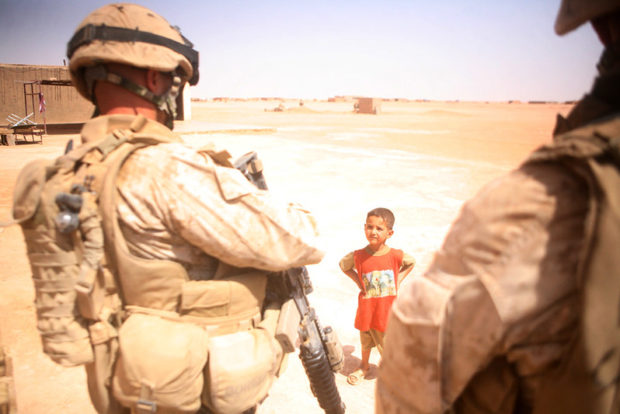
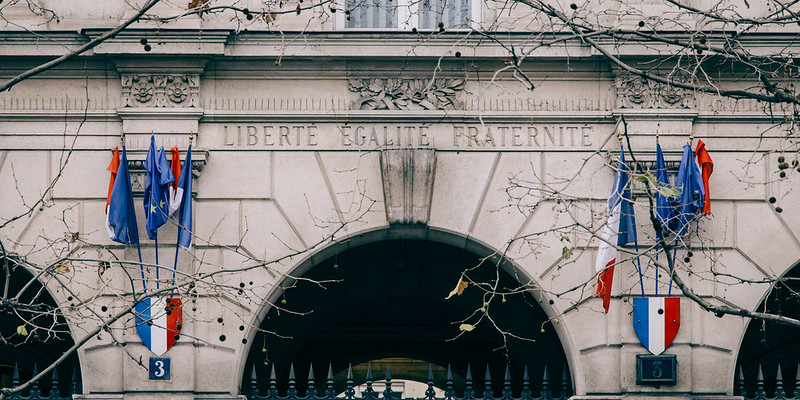
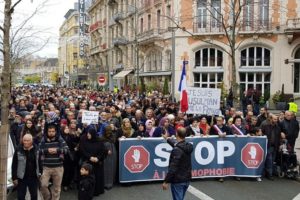
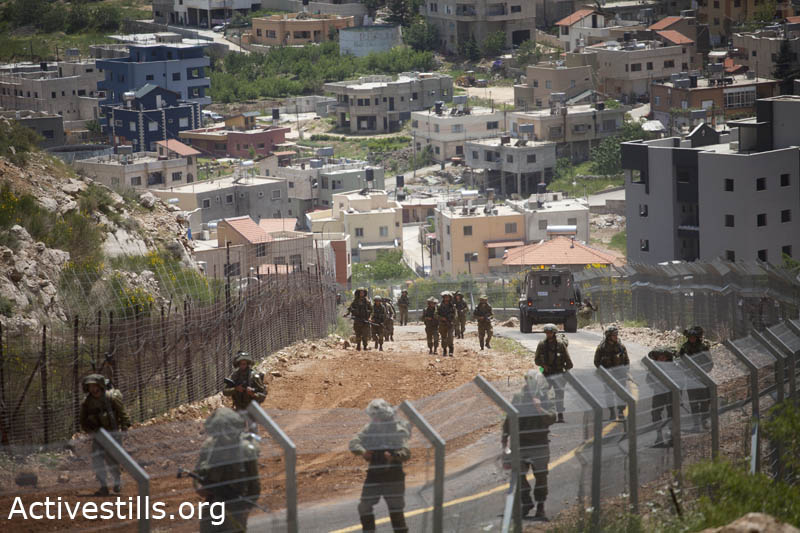
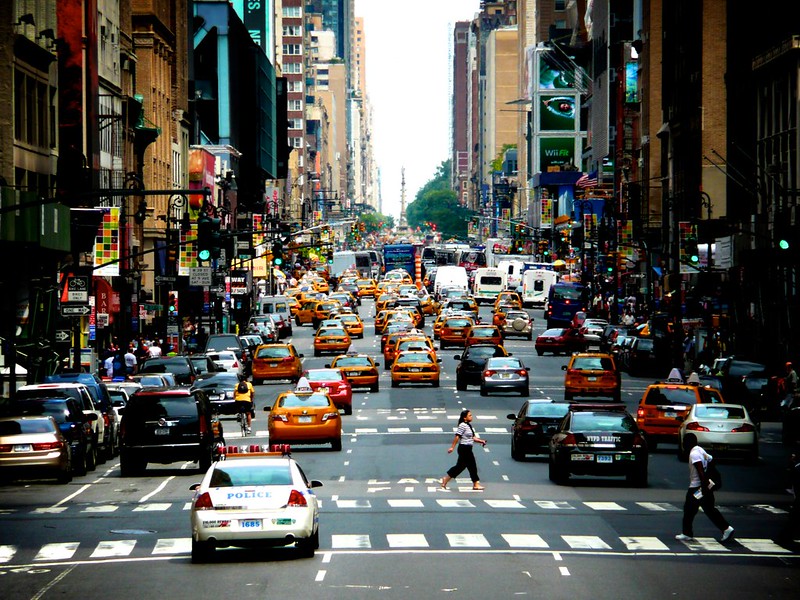
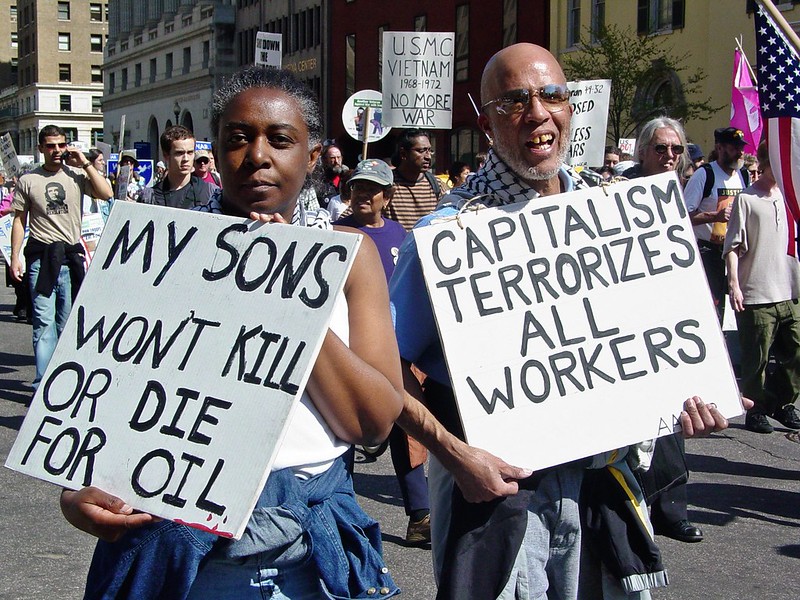

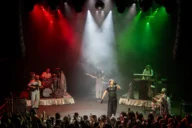
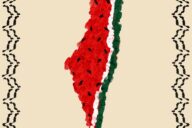
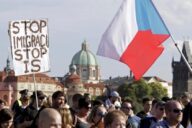









No Comments